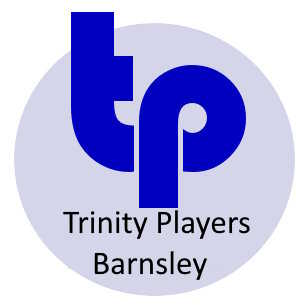Trinity United Reformed Church was formed in 1972 when the Regent Street Congregational Church joined with Farrar Street Congregational Church and the former Sheffield Road congregation.
The building in Farrar Street which opened in 1898., was known as Farrar Street Congregational Church and along with many church groups had a vibrant theatre group having built on years of local success.
The first record of the Players came on October,7th 1932, when ‘wholesome Yorkshire fare was provided for all visitors to the Farrar Street Congregational Church…in the shape of “Custard and Rhewbarb i’ Paris”.’
The group was known as Farrar Street Church Players until 1960. They then became Farrar Street Congregational Church Players. Not Now Darling by Ray Cooney & John Chapman in 1973 became the last play as Farrar Street Congregational Church Players.
But now a new church had been created and the Players wanted to continue.
On February 22nd, 1973, the first meeting of the Players committee and the Minister, Lionel G Anderson was held. The name Trinity Players was decided upon. For that first year, that decision was the clearest and easiest made.
Farrar Street Players were reborn with a new name.
Trinity’s early aims were modest. They would limit their productions to one play. Readings would be held on ‘their’ night which was the first Monday of the month and the first such meeting was planned for the first Monday after April 1st.
It now emerged that the newly formed Trinity Players’ further requests set them upon a collision course with the church.
Trinity Players, under their earlier name of Farrar Street Players, clearly had a following that they were obviously keen to maintain. Although their initial production aims were modest, being one play a year, they wanted their previous audiences to be in no doubt that it was business as usually for Farrar Street Players.
In putting on their planned one production demanded time and space within the church’s calendar, the Players requested a rehearsal time of seven weeks, including play week. This was interpreted as three nights of those seven with a full week of the play’s run. Scenery was to be erected two weeks (the two week block) prior to the run. The seating for the production was set at 150.
After the meeting, the Players received a letter dated March 1st, 1973. It was from the Lionel G Anderson, the minister. He initially recognises the ‘positive approach taken that evening’ (22/2/1973). However, Mr Anderson had not finished. As to the former name of the Players, he said, “It is so vital to the ‘New Church’ that the two former churches ( ie Farrar Street and Regent Street) die completely on March 1st”. Trinity simply wanted to use their former name to promote their new identity. The minister conceded that for only the first play, the Players could use this link and he was not agreeable “should a second play be presented….not agreeable to any further mention of the former name.”
Farrar Street Players had been established and with great popularity for the previous 41 years.
On Trinity Players’ request that the group be an open society, that is involving no-church members he had this to say. “You will….be a fully church related group, sharing the full aims of the church, presenting reports and financial statements. …Trinity Players will be free to plan, arrange meetings and need permission of the church for the use of buildings and for the performance of plays.”
He finished by saying that he wanted to clarify things.
But he had not finished.
He did agree to the two week block for rehearsal time “if advised early enough” but seven weeks at three nights a week was “clearly just not on…..Quite honestly, I could never agree.” He added that it “make any real church life just impossible.” As for two plays a year, 14 weeks of the church “just not dare involve itself”. (Where the notion of two plays comes from at this point I am not quite sure, but the quote is of the time.)
The minister suggested use of private homes for rehearsals but arrangements for rehearsals in the church would need to be by arrangements with other organisations or plotted liaising with other groups under a co-ordinating committee or Leaders’ Conference.
In Trinity Players response, Bill Moss acknowledged that this was the situation. We “will have to see what happens now.”
